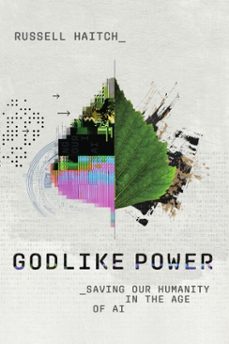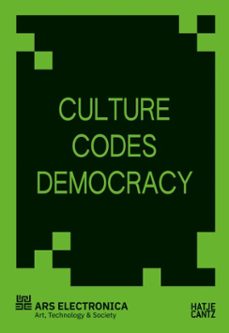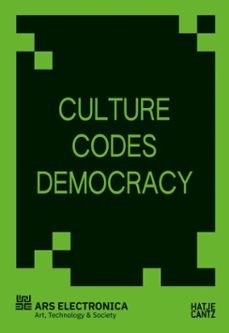Imprescindibles
Más vendidos Libros más leídos eBooks más leídos Todos los libros Todos los libros Autores destacados Series y sagas
Recomendados Libros recomendados Autores destacados Libros que inspiran Vidas con historia LGTBIQ+ English books
Ficción
Literatura Contemporánea Estudios literarios Clásicos Cuentos Poesía Teatro Libros de bolsillo Sagas literarias
Géneros literarios Novela romántica y erótica Novela negra Novela histórica Narrativa fantástica Novela de ciencia ficción Novela de terror Narrativa de humor Narrativa de viajes
No Ficción
Ciencias y tecnología Biología Ciencias Ciencias naturales Divulgación científica Informática Ingeniería Matemáticas Medicina Salud y dietas Formación Idiomas Estilo de vida Libros de Cocina Guías de viaje Narrativa de viajes Deportes Libros de Juegos Manualidades
Humanidades Autoayuda y espiritualidad Ciencias humanas Derecho Economía y Empresa Psicología y Pedagogía Filosofía Sociología Filología Biblioteconomía Estudios filológicos Estudios lingüísticos Estudios literarios Historia y crítica de la Literatura
Infantil
Juvenil
#Jóvenes lectores Narrativa juvenil Clásicos adaptados Libros Wattpad Libros Booktok Libros de influencers Libros de Youtubers Libros Spicy Juveniles Libros LGTBIQ+ Temas sociales Libros ciencia ficción Libros de acción y aventura Cómic y Manga Juvenil Cómic Juvenil Manga Shonen Manga Shojo Autores destacados Jennifer L. Armentrout Eloy Moreno Nerea Llanes Hannah Nicole Maehrer
Libros de fantasía Cozy Fantasy Dark academia Hadas y Fae Romantasy Royal Fantasy Urban Fantasy Vampiros y hombres lobo Otros Misterio y terror Cozy mistery Policiaca Spooky Terror Thriller y suspense Otros
Libros románticos y de amor Dark Romance Clean Romance Cowboy Romance Mafia y amor Romance dramatico Romcom Sport Romance Otros Clichés Enemies to Lovers Friends to Lovers Hermanastros Slow Burn Fake Dating Triángulo amoroso
Cómic y Manga
Novela gráfica Novela gráfica americana Novela gráfica europea Novela gráfica de otros países Personajes, series y sagas Series y sagas Star Wars Superhéroes Cómics DC Cómics Marvel Cómics otros superhéroes Cómics Valiant
Books in English
Books in English Fiction Non Fiction Comic Teen & Young Adult Main Authors Ken Follett Agatha Christie Stephen King Jane Austen Maggie O’Farrell On sale
Books in English for Young Adults Age 13+ Age 15+ Young Adult Authors Rebecca Yarros Sarah J. Maas Brandon Sanderson Ali Hazelwood Alice Oseman
Audiolibros
Literatura Contemporánea Narrativa fantástica Novela de ciencia ficción Novela de terror Novela histórica Novela negra Novela romántica y erótica Historia Historia universal
Humanidades Autoayuda y espiritualidad Ciencias humanas Economía y empresa Psicología y pedagogía Filosofía Infantil Audiolibros infantiles
Ciencia y tecnología Ciencias naturales Divulgación científica Medicina Salud y dietas Arte Cine Música Historia del arte
eBooks
Literatura Contemporánea Narrativa fantástica Novela de ciencia ficción Novela de terror Novela histórica Novela negra Novela romántica y erótica Juvenil Más de 13 años Más de 15 años Infantil eBooks infantiles
Humanidades Autoayuda y espiritualidad Ciencias humanas Economía y Empresa Psicología y Pedagogía Filosofía Historia Historia de España Historia Universal Arte Cine Música Historia del arte
Ciencia y tecnología Ciencias naturales Divulgación científica Medicina Salud y dietas Filología Estudios lingüísticos Estudios literarios Historia y crítica de la Literatura Estilo de vida Cocina Guías de viaje Ocio y deportes
Preventa de eBooks de Ordenadores. Conceptos. Elementos
Te puede interesar
Filtros
Del 1 al 5 de 5
VIVAS, FREDI
SUDAMERICANA 9789500773928
Una guía para entender cómo la inteligencia artificial aumenta las capacidades humanas y se convierte en una verdadera aliada.¿La inteligencia artificial viene a desplazarnos? ¿A quitarnos el trabajo? ¿O viene a aumentar -como nunca antes- las capacidades que nos hacen humanos?En medio de promesas exageradas y noticias apocalipticas, Fredi Vivas -ingeniero, tecnologo y pionero en IA- nos propone una mirada distinta: lo humano y lo artificial ya no compiten, sino que se integran. En este libro traza el mapa de una nueva era, donde pensar, crear y decidir ya no es una tarea individual, sino un proceso compartido con maquinas inteligentes. Ademas, nos explica, de manera clara y accesible, como funciona este nuevo paradigma y por que nos involucra a todos. A traves de historias reales de cientificos que descubren nuevas proteinas, artistas que crean con la ayuda de la IA y docentes que enseñan junto con asistentes inteligentes, el autor nos muestra como la tecnologia se convierte en una extension de nuestra mente.Generacion IA no es un libro tecnico ni futurista. Es una guia para entender el presente y prepararse para lo que viene. Con una mirada etica, humana y realista, Fredi Vivas nos invita a dejar de temerle a la tecnologia y empezar a usarla como lo que es: una aliada.
Ver más
eBook
HAITCH, RUSSELL
IVP Academic 9781514012499
What Does It Mean to Be Human in the Age of AI? With all the hype and speculation around artificial intelligence, its most profound effects have yet to be revealed. The bigger question is not just what AI is doing to our jobs but to our soulsour relationships with God and one another.In Godlike Power, Russell Haitch cuts through the noise to tell the story of three core developments: the push to humanize machines, drawing us into emotional bonds with AIs; the drive to mechanize people, rooted in Enlightenment reason and the Industrial Revolution; and how God became human, so that humans could become more like Godand how techno-religion proposes a rival path to divinity. These three stories offer contrasting religious visions. Haitch argues we are now confronted with two rival paths to divinity, and we must choose the right one. Godlike Power argues that the third storythe Christian story of real people becoming like Godoffers the timeless and hopeful vision we need, allowing us to journey into the age of AI on a path that leads to life.AI is the latest chapter in humanitys Promethean quest for godlike power. But it is also a story about our perennial quest for intimacy. Even as AI technology rapidly changes, Haitch argues we need wisdomsomething more than superintelligenceto attain the power and love we long for.With Godlike Power, you can wisely examine AI through a theological lens, enabling you to engage thoughtfully and responsibly with how AI is reshaping our understanding of identity, truth, and what it means to be human.
Ver más
eBook
Atlantic Books 9781805464914
In 1968, Stewart Brand declared: We are as gods - and we might as well get good at it. Half a century later, that prophecy has come true.We can rewrite genes, edit embryos, build artificial minds, extend life, and terraform worlds. The old miracles - omniscience, omnipresence, even resurrection - are becoming standard operating procedure. But the real question isnt whether humanity can play god. Its whether we can do it wisely.In this book, the bestselling authors of Abundance and Bold return with a sweeping exploration of our species next great transformation. Blending hard science with vivid storytelling, Peter Diamandis and Steven Kotler chart humanitys ascent from scarcity to superabundance - and the psychological, ethical, and existential challenges that come with it.Across breakthroughs in AI, robotics, genetics, longevity, and consciousness research, they reveal a paradox at the heart of progress: as our external power expands, our inner resilience must evolve to match. Abundance without meaning leads to collapse. Intelligence without wisdom leads to extinction. To thrive in a world of everything, everywhere, all the time, we must learn to wield our godlike powers with humility, creativity, and flow.Equal parts warning and invitation, We Are As Gods is a map for flourishing in the exponential century. Because the future wont be built by those who fear whats coming, but by those who know how to turn chaos into creation.Abundance is here. Are you ready?
Ver más
eBook
Hatje Cantz Verlag GmbH 9783775762236
Art as a compass for democracy in times of technological changeCulture Codes Democracy is a timely publication exploring how art and cultural critique can help societies rethink their relationship to new technologies. Drawing on the expertise of leading European cultural institutions, it highlights the role of artistic practice in shaping democratic futures. The book distinguishes itself through: Three thematic sectionsMediated Realities, Speculative Governance, and Hybrid Entitieseach showing how art engages with technology and democracy Contributions from pioneering cultural organisations, offering real-world case studies and insights A forward-looking perspective, envisioning how art can guide Europe towards digital sovereignty Richly illustrated and thought-provoking, this critical reader is essential for anyone interested in the intersection of art, politics, and technology in shaping tomorrows democracy.
Ver más
eBook
Hatje Cantz Verlag GmbH 9783775762694
Art as a compass for democracy in times of technological changeCulture Codes Democracy is a timely publication exploring how art and cultural critique can help societies rethink their relationship to new technologies. Drawing on the expertise of leading European cultural institutions, it highlights the role of artistic practice in shaping democratic futures. The book distinguishes itself through: Three thematic sectionsMediated Realities, Speculative Governance, and Hybrid Entitieseach showing how art engages with technology and democracy Contributions from pioneering cultural organisations, offering real-world case studies and insights A forward-looking perspective, envisioning how art can guide Europe towards digital sovereignty Richly illustrated and thought-provoking, this critical reader is essential for anyone interested in the intersection of art, politics, and technology in shaping tomorrows democracy.
Ver más
eBook
Del 1 al 5 de 5






























